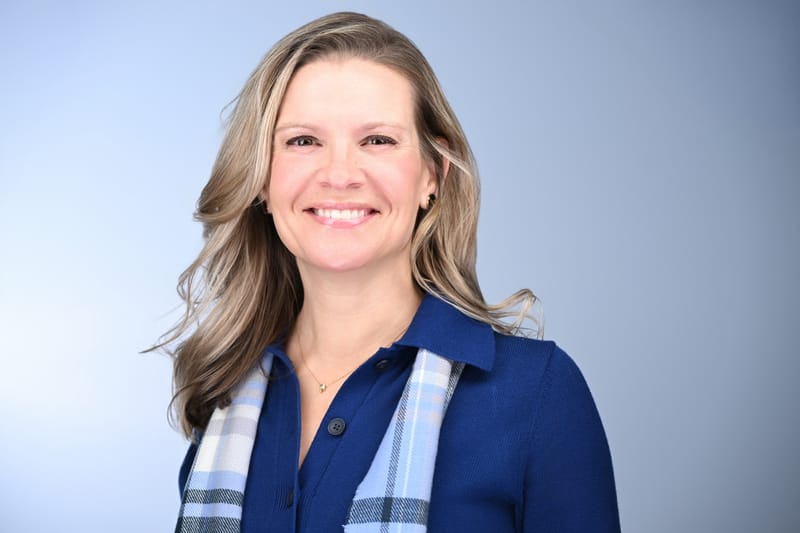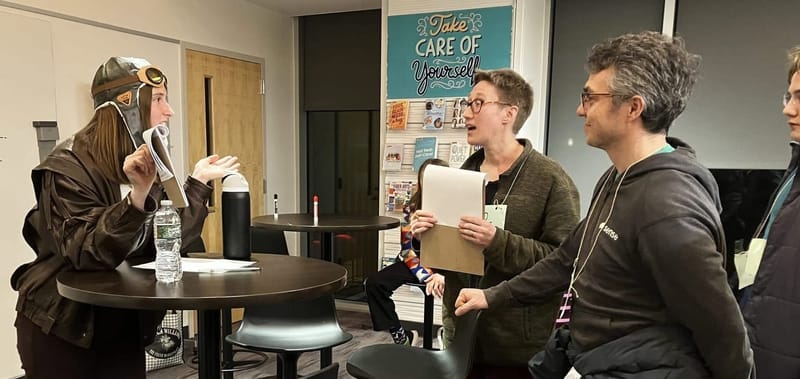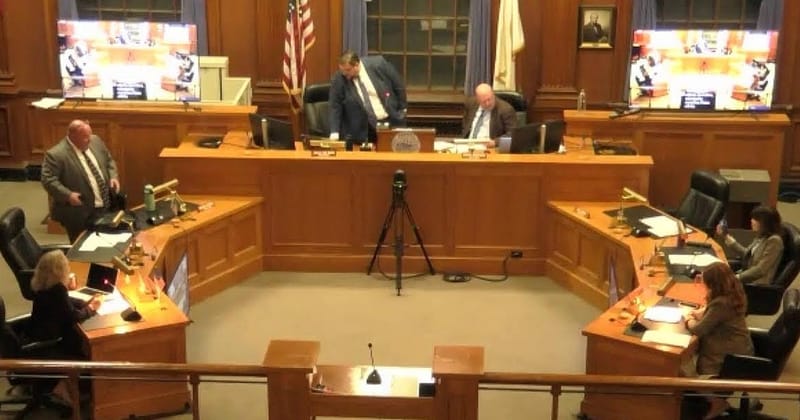Teen Night could kick off new era of inclusion in Medford
After decades of lobbying for their children, parents are hopeful that change is in the air.
When is a teen night not just a teen night? When it’s aimed at kids with disabilities and special needs and comes after months of hard work and years of lobbying city officials for help. When it could be the start of a new era of inclusion in Medford.
It was in June of 2024 that word of an override reached a group of parents who met regularly in the park with their kids, parent advocate Patricia Chery said. They looked it over, and realized there was nothing in the proposed spending plan that would help kids with disabilities and special needs, she said.
“And I said, ‘They want our vote, and we want their money,’ simple as that. Let’s try to get something,” Chery said.
“It was an opportunity,” said Alex Lauric, who, like many parents, has traveled to Wakefield, Brookline, Burlington and Somerville for adaptive services and programs.
What services?
When their kids were small, Chery said, it was fairly easy to integrate them into some of the Recreation Department’s programs, but now their kids are older and it’s not so easy.
“They don’t want to be with their mom in their social groups, you know,” Lauric said. “And they also need something to do. They need socialization.”
And that takes some effort.
When they sat down with City Council President Zac Bears, and later councilors Anna Callahan and Matt Leming, they started by asking for adaptive programs at the library.
Lauric said the library has amazing teen programs and workshops, but it quickly became clear they were not prepared to help their disabled children. They didn’t have the staff or the kind of inclusion training needed, Lauric said.
“And that got everybody thinking … we don’t need a person just for the library because we need a person that can provide this type of service at the city level,” Lauric said.
In January, Chery and Lauric and a group of parents presented an official request to the City Council for a city-wide inclusion specialist.
That, Lauric said, came one day after they asked the School Committee to hire its own district-wide inclusion specialist and bus monitors and to kick-start the national Best Buddies Program, something for which Lauric and Tanya Sullivan had been advocating for number of years.
MA & RI - Best Buddies International matches up neurotypical kids with kids with intellectual and developmental disabilities for one-on-one friendships.
Lauric and Chery were both floored when the School Committee said yes to all three requests. Turns out the School Department had already included a position for a district-wide inclusion specialist in the budget and bus monitors have been budgeted for next year.
Since that meeting, Lauric’s son has had two meetings with his new Best Buddy, she said.
“It was exciting,” added Lauric, who has also served on SEPAC, the Special Education Parent Advisory Council, for a number of years. “Honestly, we were asking for the same thing year after year after year. Now, with this new advocacy effort and with the overrides, the time was right.”
What is an inclusion specialist?
Chery, Lauric and other parents wrote a three-page job description for what they’d like to see in an inclusion specialist. The list included, but was in no way limited to, someone creating adaptive programming, teaming up with local businesses to promote inclusive hiring practices, and providing accessibility guidelines and consultation for event organizers, including the city, to make sure all activities are not just accessible but are also inclusive, welcoming and safe spaces.
Hedging their bets
While Lauric and Chery are both excited about the strides they’ve made, they are leery as well. They’ve been burned before when big plans for programming for kids with disabilities and special needs didn’t pan out or programs fizzled before getting off the ground.
Case in point, Chery said, was a Tufts University proposal to Medford Recreation about starting an adaptive program, Hoops Without Limits. Chery said it fell apart before it barely got off the ground.
“Here you have somebody who’s willing to start up this program, staff it with appropriate staff and all they’re asking from Medford is a place to house it on a Saturday or Sunday at any time, and they can’t even accommodate that,” Chery said, her voiced edged with frustration.
Chery said that although the city has offered resources for programs outside the community, that’s missing the point.
“We don’t want to be outsourced anymore,” she said. “We’re done being outsourced.”
Back to the Teen Night
When City Councilor George Scarpelli realized the scope of the issue, he wanted to help and came up with a plan for an “MMS Teen Night.”
Scarpelli, who is the program director for Somerville Parks & Recreation, said the plan is for Medford, Malden and Somerville to each host a Friday teen night each week for six weeks. Somerville kicked off the event last Friday.
“It’s 6 to 8 p.m. on Friday nights for our kids to be dropped off, to hang out, to dance, to have pizza and socialize,” Chery said.
But again, as excited as Chery and Lauric and their kids are, Chery can’t help but be skeptical.
“I’m very curious to see, and this is just me, what Medford plans to do when it’s their turn to host,” she said. “Because I don’t think that they’re going to be able to. But we’ll see. I have hopes.”
Next steps and down the road
Chery said she’s been pleasantly surprised to see city officials and residents come together to tackle the inclusion issue.
“Our city is divided in so many ways,” she said. “But they’ve all come together on this.”
She is also quick to note that while she and Lauric have taken the recent lead on the inclusion issue, she credits others, such as Sullivan, Cara Higgins, and Raven Rago, along with a host of other parents past and present, for showing up to meetings and City Council hearings and advocating tirelessly for their kids
Which isn’t anywhere near slowing down.
With balls now firmly rolling, Chery said the plan is to keep on top of city officials by continuing to be a presence at meetings, speaking up and following up with emails. The idea is to “make sure they know that we're not just going to be yessed and pushed off to the side,” Chery said.
Chery hopes that one day in the near future she won’t have to think about follow-up conversations because her child would have access to the same things that neurotypical kids have access to.
“If we want a book club for kids with disabilities, there’s one that’s already available to us. If we want to have a social group, or play chess, have tutoring or an after-school program for kids to study together that are like minded, we would have access, just like every other kid in this city, just like every other adult in this city,” she said. “That’s where I would like to see this go, like it isn’t even a conversation anymore.”





